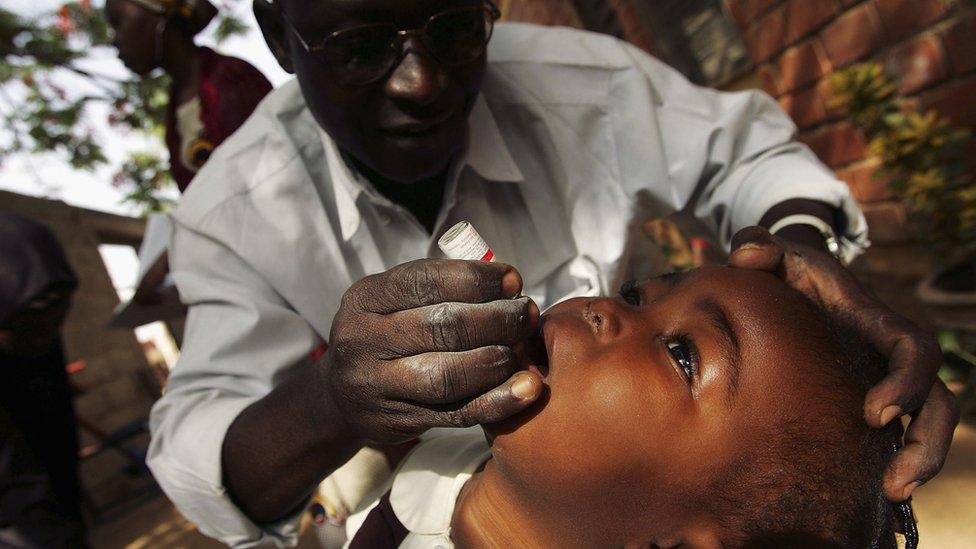DR Congo polio outbreak 'from poor vaccine coverage'
- Published

Polio can only be prevented through immunisation
Two outbreaks of polio have been identified in the Democratic Republic of Congo, in a blow to the goal of wiping out the disease from the world.
The said there was a high risk the vaccine-derived virus could spread.
The strain of polio involved comes from areas with poor vaccine coverage.
A similar outbreak, linked to low immunisation rates, was confirmed last week in Syria.
"WHO assesses the risk of further national spread of these strains to be high, and the risk of international spread to be medium," the WHO stated in its disease outbreak report.
At least four cases have been identified in DR Congo.
Two were found in the eastern Maniema province and two further south in Haut-Lomami province, the WHO says.
What is vaccine-derived polio?
The cases in DR Congo are thought to be caused by vaccine-derived poliovirus type 2 - not a wild polio virus outbreak.
This happens in areas with patchy vaccine coverage, such as Syria.
The vaccine contains a weakened form of the polio virus, which helps children's bodies to build up immunity to the disease.
The low-level virus in the vaccine is also excreted and when there are poor levels of sanitation, this vaccine-virus can spread in the community.
This can help other children to become protected but on very rare occasions, the virus can undergo genetic changes and turn into a virus that can paralyse.
If lots of children have not been immunised, then the virus can start circulating again.
But experts say these small outbreaks can be contained.
- Published11 August 2016
- Published12 August 2016